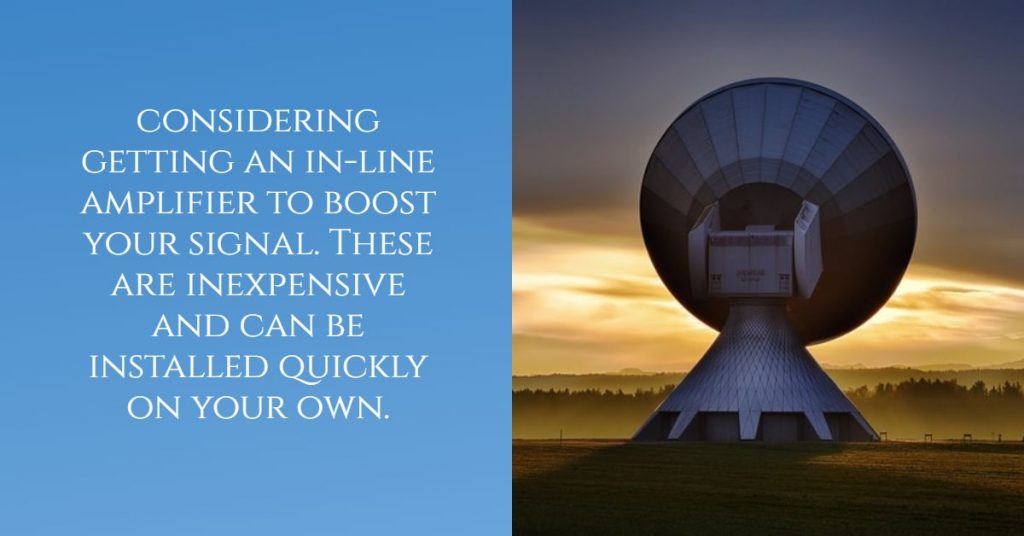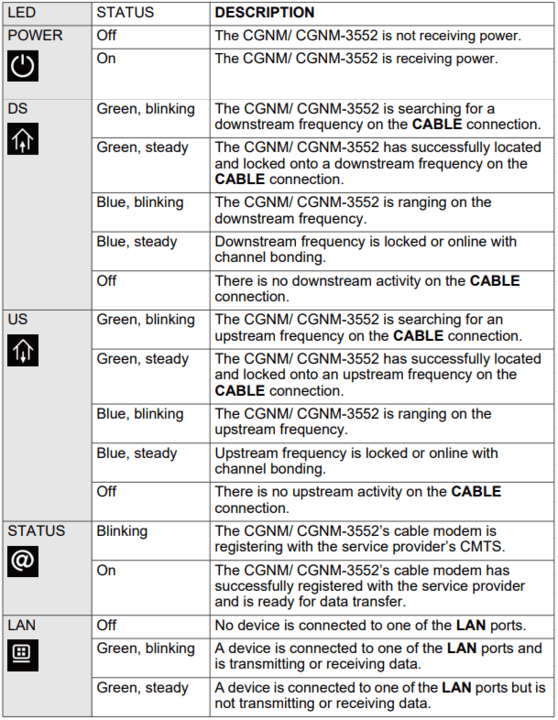
If you have been having difficulty with the quality of your satellite TV you might be wondering how to boost a satellite TV signal. Though a professionally installed satellite dish and receiver shouldn’t cause you any problems, there are a few things you can do to ensure you get the best picture quality possible while watching Satellite TV.
In this article, we will identify the reasons why you might not be getting a good signal and will provide our best tips on improving your signal quality. If you’ve been having difficulties with getting a good signal from your satellite TV it is always a good idea to reach out to your satellite TV provider. They should be able to help you troubleshoot your issue and replace any equipment that may be damaged or malfunctioning.
Not in love with your current satellite TV provider? Contact POYNT360 today and find out why we are your first-choice satellite TV provider. We always go above and beyond for our customers and are here to help you get great satellite TV for a great price.
What Causes Poor Satellite TV Signal?
There are a few reasons why your satellite TV signal might not be performing as optimally as you would like. Sometimes satellite TV signals become weakened due to environmental factors while other times it could be due to damaged or improperly installed equipment. See our tips below on what you can do to help reduce your issues with a less than spectacular signal.
Environmental factors – one of the most common reasons for a disruption in your satellite TV signal is poor weather conditions. Environmental factors such as heavy rain or snowstorm can cause your satellite TV signal to become weakened. Snow or rain makes it difficult for your satellite dish to receive a clear signal from the satellite in space, this sometimes leads to outages that leave you without your satellite TV for the duration of the storm. Though this issue is frustrating it is typically only a matter of time before a storm passes and your satellite TV should be up and running as usual.
For more information on how the weather can affect your satellite TV experience, see our previous article “How Does Satellite TV Work in Bad Weather?”
Debris on your satellite dish – if after a rain or snowstorm you are still experiencing issues with your satellite TV signal, it may be a good idea to inspect your satellite TV dish for any debris or water that could be blocking your signal. It is not overly common for debris to land on your satellite and block a signal but ensuring that your satellite TV dish is clear of debris will either fix the problem or rule it out as a potential issue.
Improperly installed equipment – sometimes a poor satellite TV signal is the result of improper installation. If you have recently changed the location of your satellite TV receiver, it might be a good idea to double-check that your cables have been plugged in correctly. If your satellite TV has suddenly stopped working, you may want to consider checking your cables to ensure everything is as it should be. While you are at it, always ensure that your TV input is also set correctly to play on your TV screen.
Damaged equipment – sometimes satellite TV equipment can become damaged and lose its ability to properly receive your satellite TV signal. If you are stumped on what could be causing your poor satellite TV signal, consider reaching out to your provider. They can assess your equipment and ensure that it is in good working order and replace any equipment if necessary.
Mis-aligned satellite dish – a common reason for a poor signal is that your satellite TV dish is misaligned or not in clear view of the satellite. Though this can happen due to improper installation or a heavy storm, it is most common with portable satellite TV dishes used at cottages or in an RV. Always ensure that your satellite dish has a clear view of the sky and is not blocked by heavy trees or bush.
For more information on how to obtain an optimal satellite TV signal while RV’ing or while at the cottage see our previous article “How to Get Satellite TV for an RV.” In it, we detail your options when using a portable satellite TV dish and give our best tips for placement.
Add an Extra Boost If You Need To
Have you checked out all our tips for what might be causing a poor signal and you’re still having problems? Sometimes your satellite TV signal may need a little bit of a boost to increase its ability to be sent to your receiver. Though it is not common to need this for properly installed receivers it may be needed in large homes where the receiver is located a fair distance from the satellite dish or when your TV is located farther away from your receiver.

In the event that you need an extra boost to get your signal from your dish to your receiver, considering getting an in-line amplifier to boost your signal. These are inexpensive and can be installed quickly on your own. If you rent your satellite TV equipment it may be a good idea to check with your provider before installing any after-market products to be used with your receiver.
How Can I Get Help with Troubleshooting?
Sometimes the cause of your poor satellite TV signal can be easy to figure out while other times you may need a little help to work through the issue. If you ever have any concerns about your satellite TV reception it is a good idea to contact your service provider.
Satellite TV is a reliable, flexible, and affordable TV option. If you are looking to gain even more savings through your satellite TV subscription, consider checking out the double play and triple play bundles at POYNT360 for the best value.






